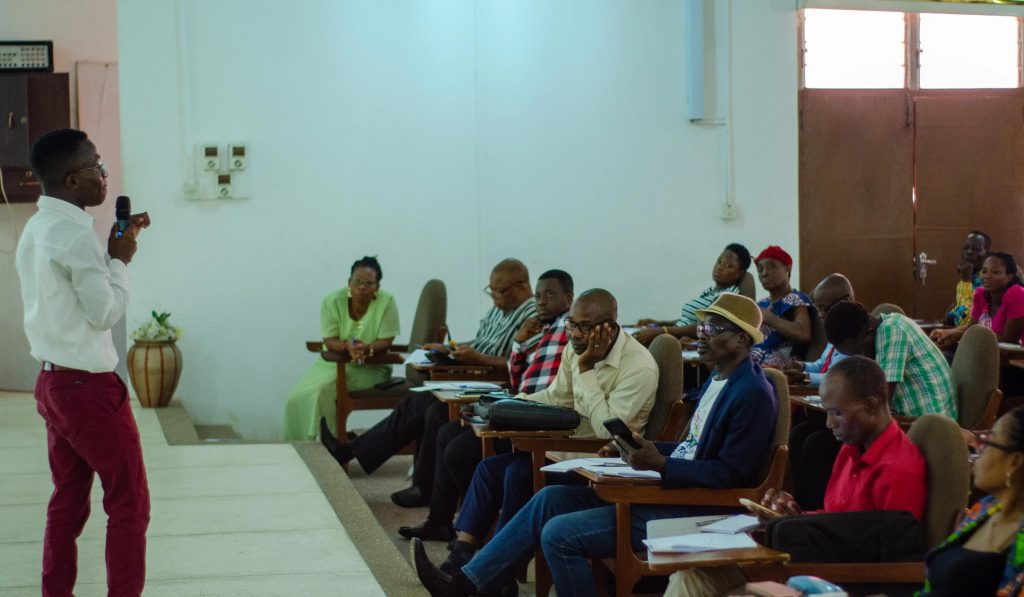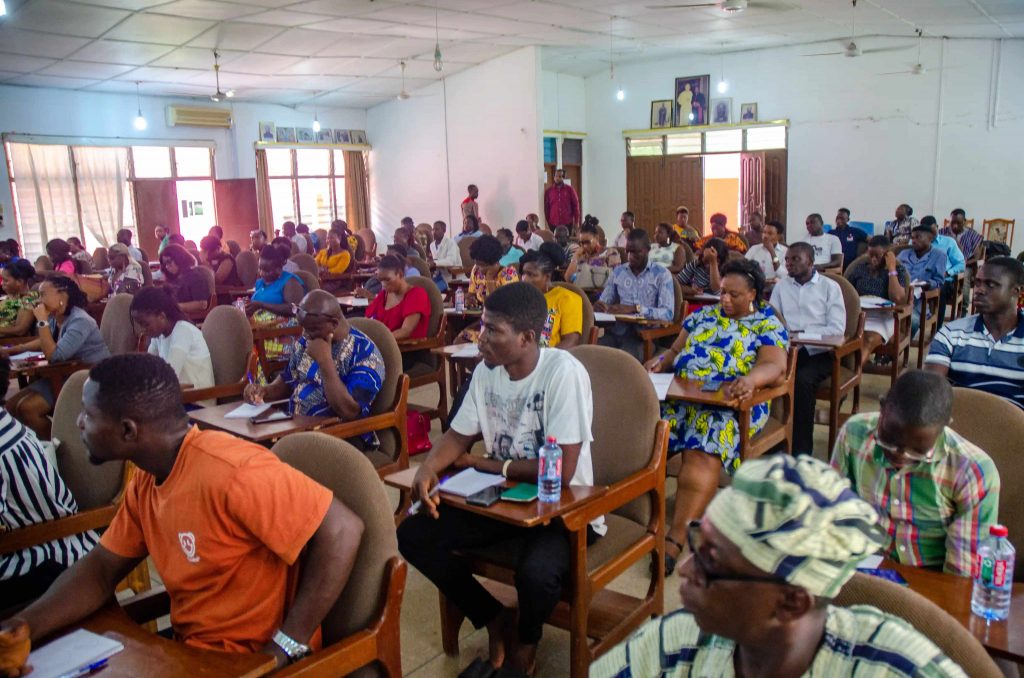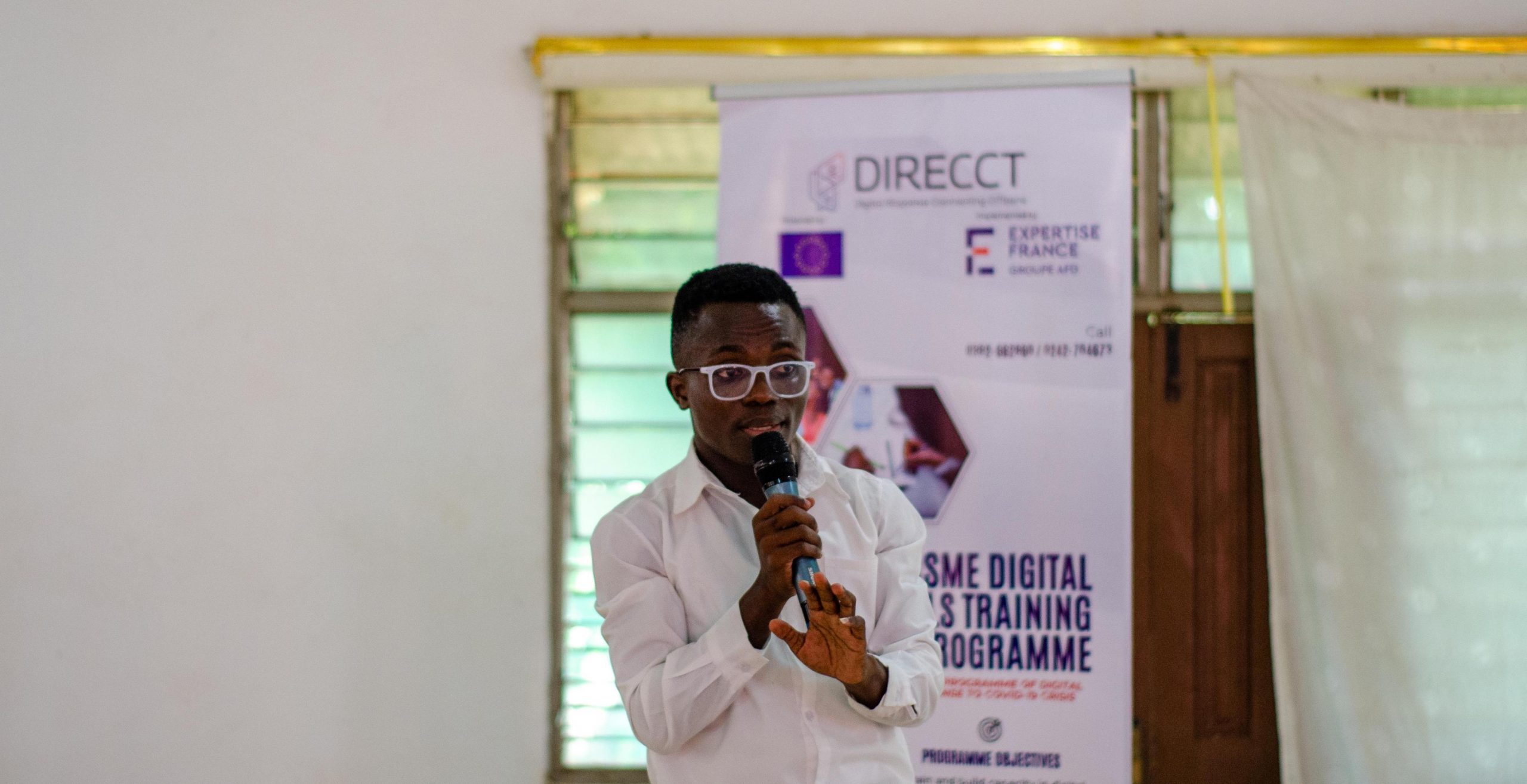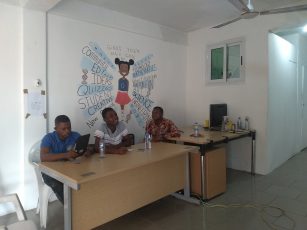The ACP-DIGI PROJECT, a collaborative initiative funded by The European Union (EU) and the Agence Française de Développement (AFD), in collaboration with the Ghana National Chamber of Commerce and Industry (GNCCI), and Suku Technologies, successfully empowered more than 800 Micro, Small, and Medium Enterprises (MSMEs) across Ghana. This achievement was realized through a comprehensive program that included both in-person workshops conducted across eight regions and numerous virtual training sessions, complemented by one-on-one mentorship training.
Reflecting on my experiences in 2022, particularly my involvement in the aforementioned project, I am reminded of a profound concept from the book “Ego is the Enemy” by Ryan Holiday which I am currently reading. The chapter titled “Follow the Canvas Strategy” resonated with me deeply. One touching quote from this chapter encapsulates the essence of my journey: “Let others take their credit on credit while you defer and earn interest on the principal.” What this implies is that, eventually, you will need to clear a path for others, whether it’s your boss, supervisor, or leader. This exemplifies humility, and you won’t remain in that position indefinitely. Find canvases for other people to paint on. Be an anteambulo. Clear the path for the people above you and you will eventually create a path for yourself. The person who clears the path ultimately controls its direction, just as the canvas shapes the painting.

My role as one of the administrative support staff during the in-person workshops involved not only facilitating the logistics but also assisting in the preparation of training manuals and workbooks. Additionally, I had the privilege of conducting some practical in-person sessions and providing technical support these MSME leaders over the course of the project. These experiences have shaped my professional growth and left an indelible mark on my career.
My time at Suku Technologies over the past few years has been nothing short of incredible. Working under the leadership of brilliant minds like my boss, Tsonam Akpeloo, has provided me with invaluable exposure and inspiration. My early-year supervision by Senam Aseye helped me hone my communication and design thinking skills. Furthermore, my working under the supervision of Terry Mante played a pivotal role in honing my writing and presentation skills. These are skills that were absent from my resume when I first started working with the company, but I humbly embraced the opportunity to learn from these experts. Back then, my CV only listed a handful of coding and technical skills. However, I was able to cultivate another vital skill: interpersonal skills.

Below are some keynotes from this chapter of the book:
“It’s worth taking a look at the supposed indignities of “serving” someone else. Because in reality, not only is the apprentice model responsible for some of the greatest art in the history of the world—everyone from Michelangelo to Leonardo da Vinci to Benjamin Franklin has been forced to navigate such a system—but if you’re going to be the big deal you think you are going to be, isn’t this a rather trivial temporary imposition?”
“Find canvases for other people to paint on. Be an anteambulo. Clear the path for the people above you and you will eventually create a path for yourself.”
“Because if you pick up this mantle once, you’ll see what most people’s egos prevent them from appreciating: the person who clears the path ultimately controls its direction, just as the canvas shapes the painting.”









